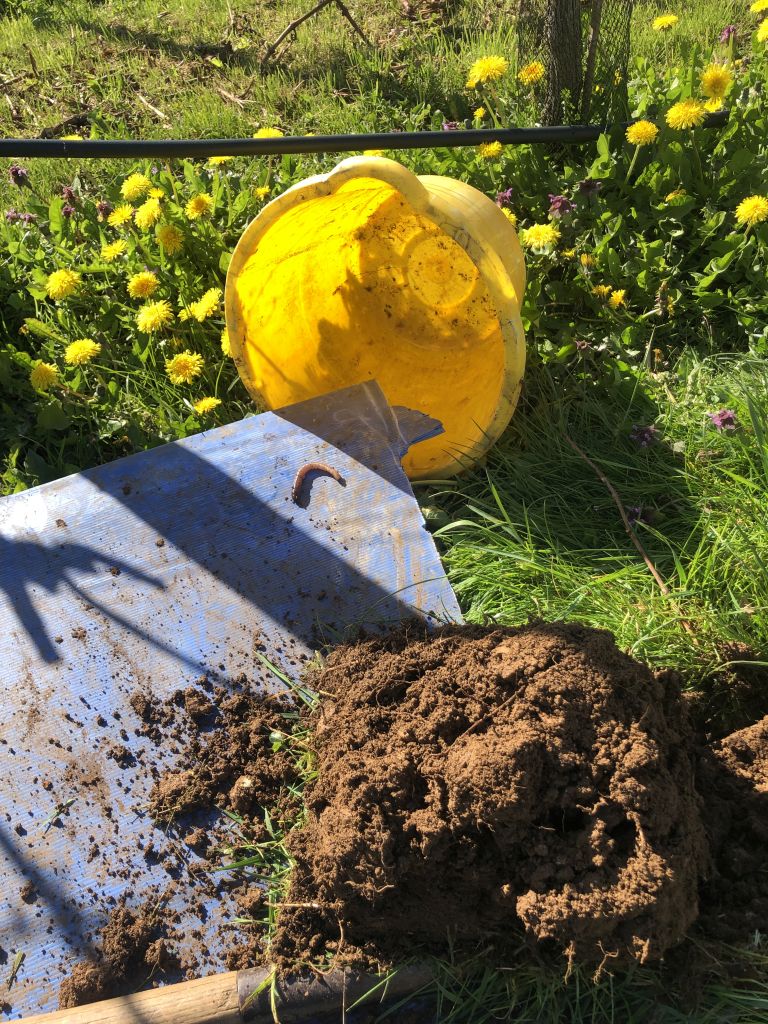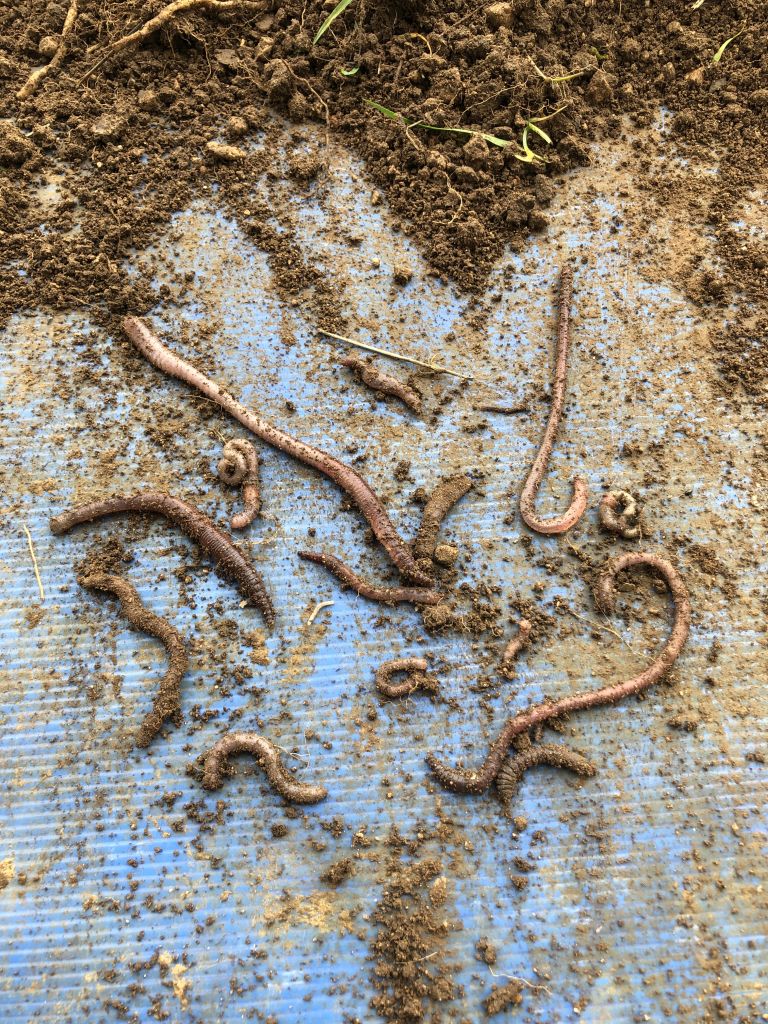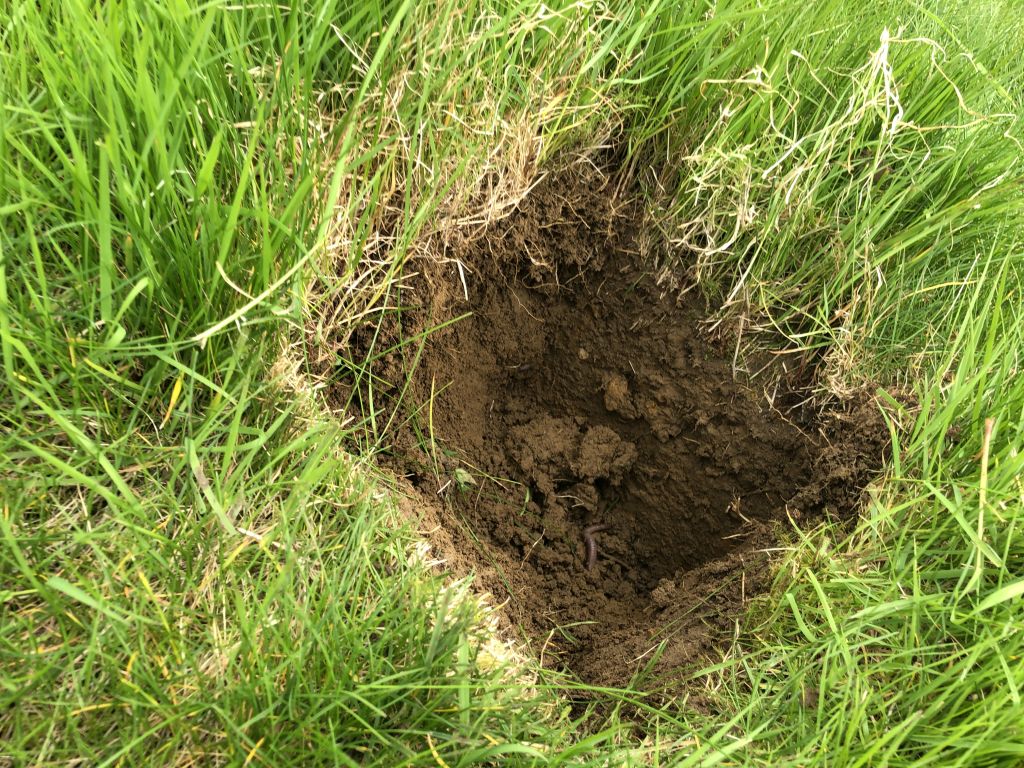Caring for our Soils
Greg Chappell, Sustainability Co-ordinator
As members of the Sustainable Wines of Great Britain Scheme (SWGB) we are committed to limiting and, where possible, reducing our impact on the environment. This includes managing and monitoring our soil health. The healthier our soils are, the happier our vines can be as there will be a greater volume of available nutrients and minerals to our vines.
Counting how many earthworms are present is an easy way of monitoring the health of the soil. Earthworms are farmers’ friends as they break up compaction, improve drainage and oxygenation of soils by providing channels for air and water to move about and they eat organic matter like leaf litter and our mulched prunings and break them down, secreting vermicast (the worms’ droppings) which converts the nutrients from their solid organic matter state and makes it available for the plants to absorb.
To find out how many worms are present I have been digging trial pits in each of our fields, placing the dug soil onto a mat and then hand sorting and crumbling the soil down to find the worms, I have collected the worms from each pit into a bucket before counting and identifying the worms present and recording my findings. The worms are then returned to the hole and the soil is backfilled. The numbers present are then averaged out across each field and then aggregated up to provide a metric of earthworms per square metre across our farm. This is one of the soil health key performance indicators that we submit as part of our SWGB assessment.
The good news is that we have plenty of wiggly critters across the vineyards; interestingly there are more worms present in our clay soil fields and the flatter vineyard areas. It would seem that the soil profiles on our steeper slopes are shallower and there isn’t as much moisture around for the worms to be as happy as possible. You can learn more about how our soils have changed in our next newsletter when we’ll discuss our recent Geology tours.




.JPG)

